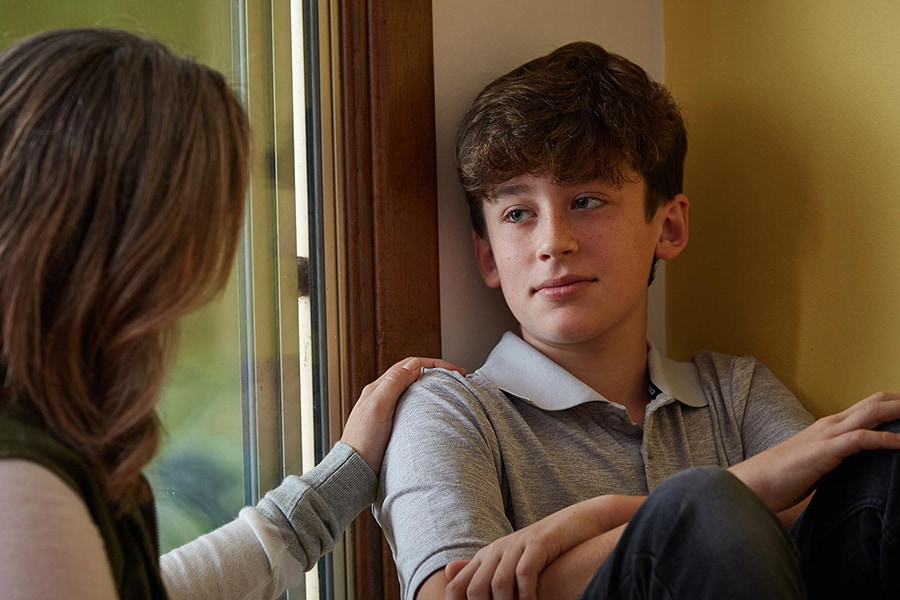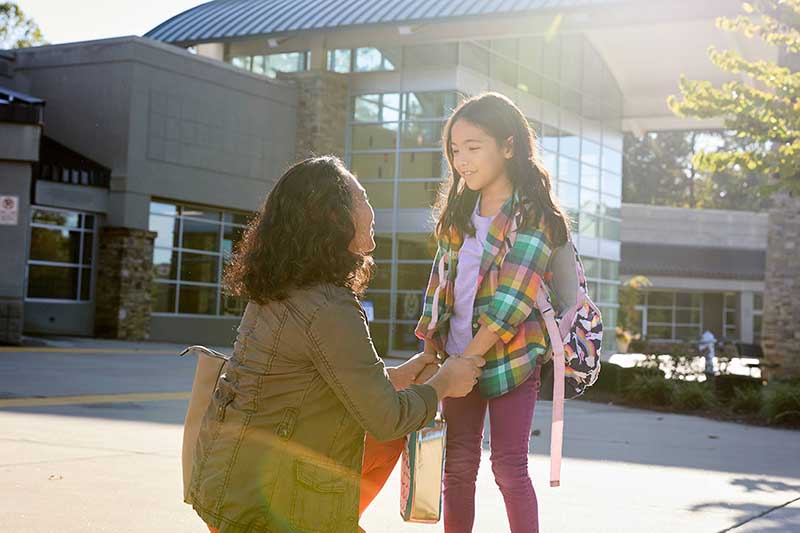Helping Kids Cope With Back-to-School Anxiety
 New school supplies. Meet-the-teacher night. A fresh haircut. Sound familiar? It must be the start of a new school year. But no matter how familiar going back to school might feel, it’s always a transition, and it comes with lots of different emotions for kids and teens. Some kids might feel excited, while others may feel nervous. They may even feel excited and nervous at the same time. Learn things you can do to help your child cope with anxiety about the start of the school year.
New school supplies. Meet-the-teacher night. A fresh haircut. Sound familiar? It must be the start of a new school year. But no matter how familiar going back to school might feel, it’s always a transition, and it comes with lots of different emotions for kids and teens. Some kids might feel excited, while others may feel nervous. They may even feel excited and nervous at the same time. Learn things you can do to help your child cope with anxiety about the start of the school year.
In this article:
How can you help your child if they're worried about school?
Sometimes anxiety comes from fear of the unknown. You can help your child prepare for the start of the school year by:
- Attending the meet-the-teacher night or visiting the school before the first day.
- Driving your child along their bus route or drop-off route before the first day so that they knows what to expect.
- Encouraging your child to practice with any items or materials they’ll use on their own at school, like a lunch container or backpack.
- Organizing meetups for your child to connect with kids who attend their school, so there will be at least a few familiar faces on the first day.
Tips to set kids up for success
While we can’t prepare our kids for everything, there are things we can do to help set them up for success throughout the school year, such as:
- Creating, or maintaining, routines. Routines will help keep things predictable and create a sense of comfort and security. Try to maintain a consistent bedtime and morning routine.
- Practicing healthy habits. Taking care of both our bodies and our minds by prioritizing nutrition and sleep, being active and limiting screen time can help us feel better in times of stress and in everyday life.
- Talking openly about feelings. Identifying how we feel is the first step in working through an emotion. Check in with your child regularly and encourage them to name how they feel.
- Actively listening and validating your child’s feelings by letting them know that whatever they feel is OK and normal. Help them understand that they can feel more than one feeling at a time and that those feelings may change from moment to moment.
- Teaching and practicing healthy coping skills. It’s natural to want to avoid things that cause us to feel uncomfortable, but that only makes the anxiety worse. Instead of allowing your child to avoid whatever is causing worry, help them work through it by learning how to use coping skills to feel better and manage feelings in healthy ways.
What are the signs of anxiety?
Anxiety can look different in every child and teen, but keep an eye out for these common signs:
- Regularly worrying about school
- Difficulty concentrating
- Regular headaches, stomachaches or other physical pain with no known medical cause
- Changes in eating or sleeping habits (e.g., difficulty falling or staying asleep)
- Clinginess to caregivers
- Changes in mood, such as appearing to be “on edge,” irritable or tearful
- Sweating, shaking or fast breathing when thinking about school
- Avoiding certain classes or school (e.g., refusing to get dressed or trying to miss the bus)
- No longer wanting to engage in activities they normally enjoy
What causes back-to-school anxiety?
So where does back-to-school stress come from? Lots of stressors can cause kids to feel anxious about the start of the school year, such as:
- Getting to school: Getting to the bus stop on time, getting off at the right bus stop, navigating the walking route to and from school
- Social situations: Making new friends, missing old classmates or teachers, dealing with bullying or peer pressure
- Academics: Taking hard classes, doing homework, preparing for and taking standardized tests
- The school building: Finding a new classroom, making it to class on time, remembering a new locker combination
- School safety: Practicing safety drills, staying careful about food allergies
- New routines and schedules: Going to sleep and waking up earlier, packing a lunch, adjusting to new extracurricular activities
When to seek out support for anxiety
Anxiety is a normal part of life; it’s something we all experience from time to time. Learning how to navigate anxiety in healthy ways is one way kids can build resilience (the ability to handle life’s ups and downs).
Although some anxiety is normal (and should be expected), it can be a problem when it’s excessive, negatively impacts daily life or gets in the way of how your child functions. If you’re concerned about your child’s anxiety, don’t hesitate to reach out to your child’s pediatrician or a mental health professional.




